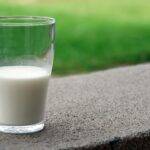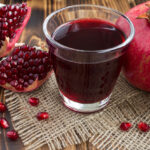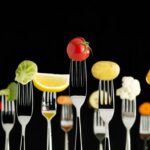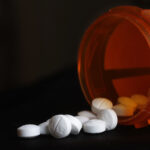To understand human water requirements, we need to say hello to the kidney: Hello, kidney. We often think of you only as a waste disposal organ, kind of like the filter on the gas line in your car. That’s true, but you do so much more than that.
You’re actually a sophisticated regulating device that keeps fluids and chemicals in a delicate balance. Lots of things can affect this balance, like external heat, exercise, food, and of course, water intake.
If you exercise and sweat, the kidneys will sense that the blood is getting saltier (more concentrated) and compensate by absorbing more water from the urine and sending it into the blood. When the kidneys can’t absorb any more water from the urine, it sends you a powerful signal to drink.
The rationale for drinking 8 glasses of water comes from a study conducted by the National Academy of Sciences in 1945. Yeah, 1945. Back then, people also believed that asbestos was a great building material and that you could lose fat by strapping yourself into a vibrating belt machine.
The study actually recommended 10 glasses, but somehow the extra two glasses got lost in history, as did one of the main points of the study: “Most of this quantity is contained in prepared foods.”
Anyhow, if you really want to get precise about water intake, the best research indicates that adult men require about 3 liters of water (about 3/4ths of a gallon) from a combination of fluid and foods a day. Women need about 2.2 liters.
This amount will vary based on activity levels and outside temperature, among other things, and drinking more than what’s required won’t confer any additional health or performance benefits. But measuring your intake like you measure the antibiotics needed to cure the clap is nonsensical.
Unless you’re old and the ability of your kidneys to maintain homeostasis is as decrepit as the rest of you, thirst is your best indicator of your water requirements. Along with pale urine. (You might, however, want to consider drinking a glass of water as soon as you wake up for a very specific reason.)
As an interesting aside, “water intoxication” is often more of a problem than not drinking enough water. When you drink too much water, it throws sodium balance out of whack and can lead to confusion, seizure, and even death. A study of runners in the Boston Marathon found that while no one died from dehydration as the clear cause, 13% of runners experienced some degree of water intoxication from drinking too much of it (Siegel, 2015).
For some reason, hydration purists got it into their soggy heads that water’s the only thing that can safely quench thirst. Coffee and tea, however, are often avoided by these purists because they think it’s going to paradoxically dehydrate them and leave them looking like a hollow-eyed smoked mackerel.
It’s somewhat understandable, though, because the caffeine contained in those drinks has diuretic properties. Plus, there’s the near-universal dry mouth experience you get from tea and coffee. However, a relatively recent study showed that the diuretic effect of tea or coffee is negligible; that they work equally well as water in terms of hydration.
As evidence, researchers at the School of Sport and Exercise Sciences at the University of Birmingham divided 50 male coffee drinkers – all of whom routinely drank 3 to 6 cups of coffee per day – into two groups (Killer, 2014).
In separate three-day trials, each group drank either four 200ml cups of coffee or the same amount of water. The researchers found “no significant differences across a wide range of hematological and urinary markers of hydration status between trials.”
As far as the “dry mouth” sensation coffee and tea elicit, it’s because of the tannins they contain. Dr. Ali Webster of the International Food Information Council explains that tannins – which are compounds found in tea and coffee – bind to our saliva and create that “drying, astringent feeling.” It’s got nothing to do with true dehydration.
This content was originally published here.




















